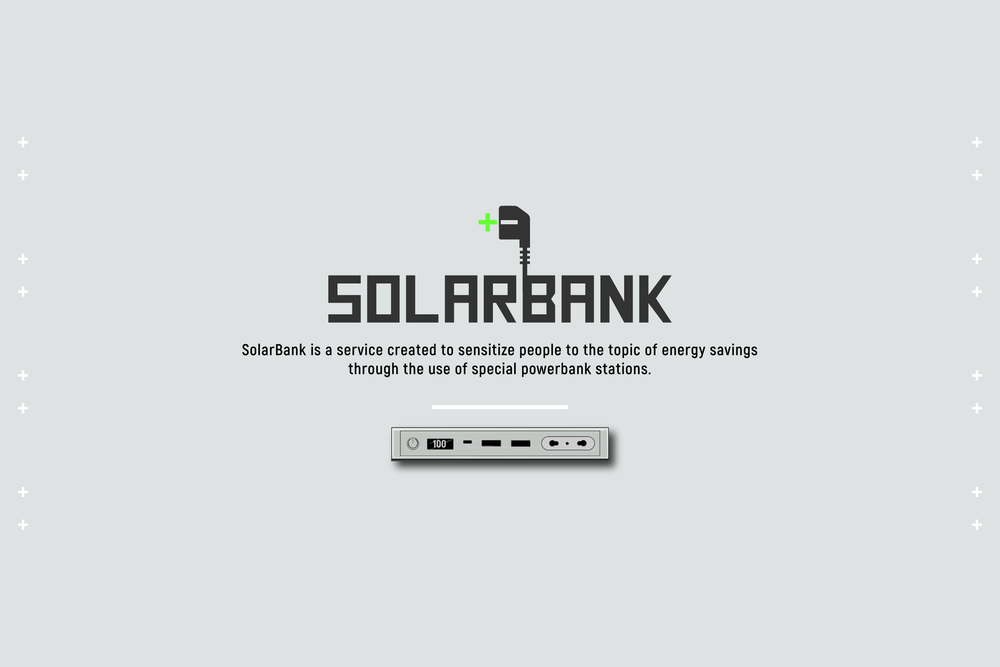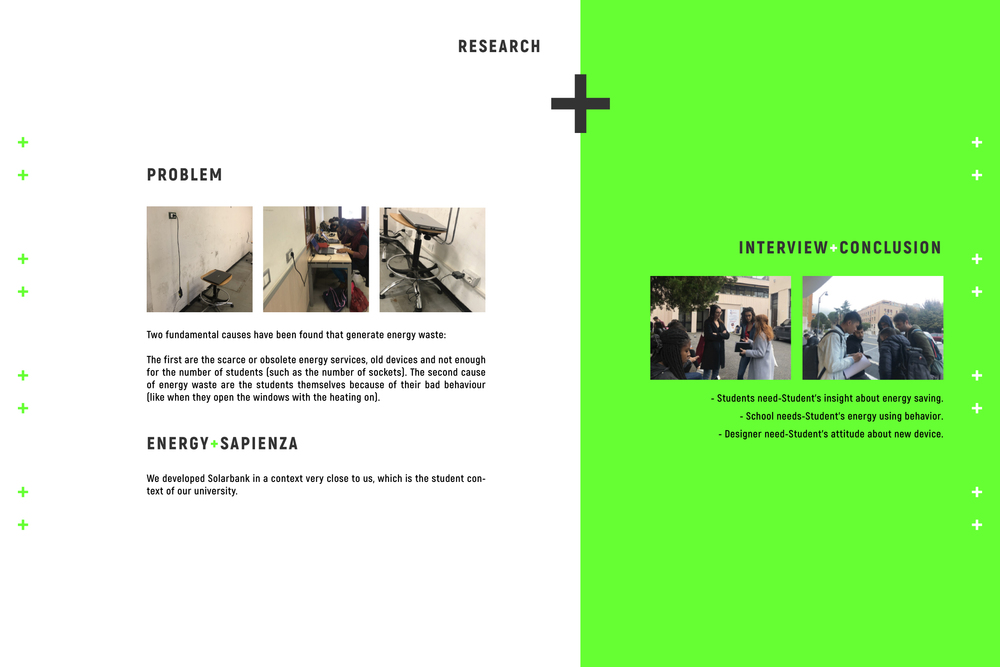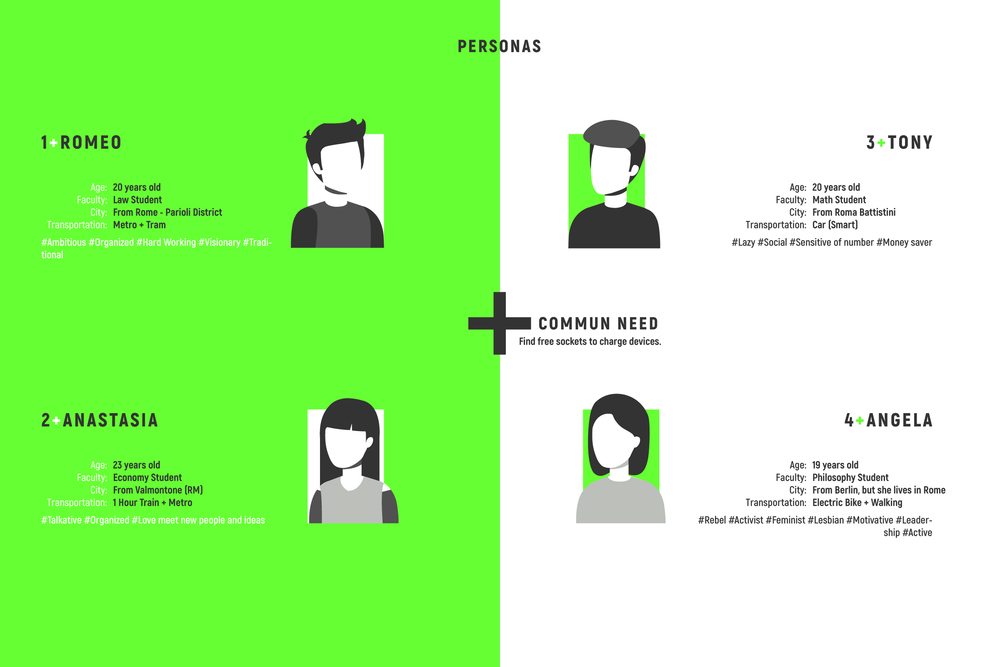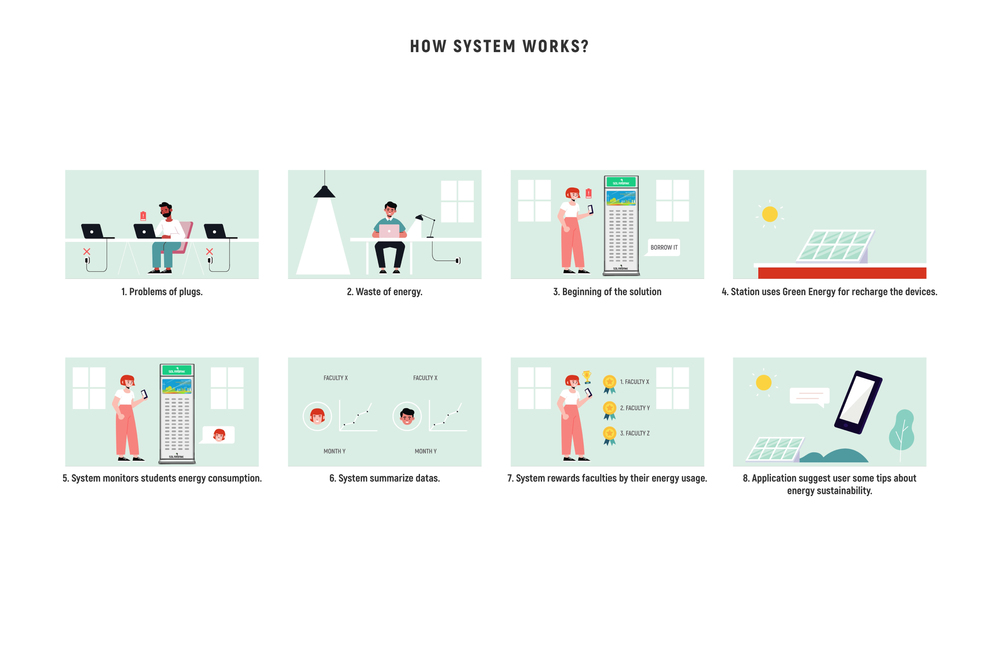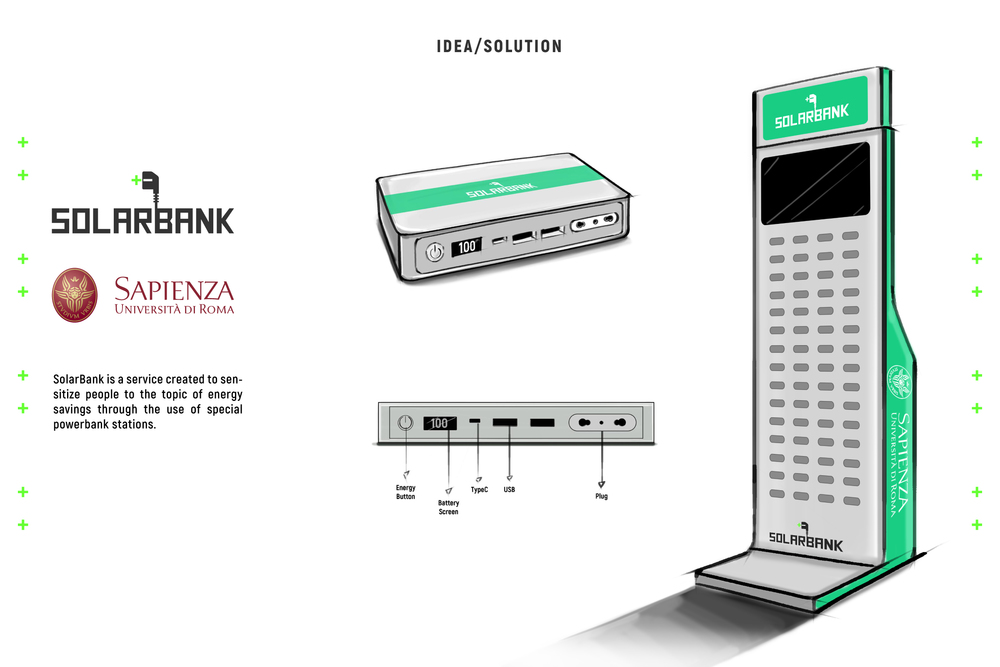Honorable Mention
SolarBank
A service to sensitize people to the topic of energy savings through special powerbank stations
Solution
Our project copes with energy waste in Sapienza University through two means: 1) Implementing University’s energy services through the installation of powerbank stations powered by solar panels; 2) An app that through the control of energy consumption creates a rankings of each faculty, generating healthy competition between students for lower their energy waste, instructed by the application on how to do it.
Project Description
One of the OUN’s goals for the sustainable development of the planet is to guarantee, by 2030, access to affordable, reliable, sustainable and modern energy for all. To achieve the goal we must change the way we produce energy, the devices with which we use it, but above all our behaviours about energy consumption. To help these changes we created SolarBank, and we developed it in a context very close to us, which is the context of our university, where energy services are obsolete or insufficient, and students create continuous energy waste due to their behavior. Our project addresses these problems through two means: 1) Implementing University’s energy services through the installation of powerbank stations powered by solar panels; 2) An app that through the control of energy consumption creates a rankings of each faculty, generating healthy competition between students for lower their energy waste, instructed by the application on how to do it.
Overview of the Solution
SolarBank is a project conceived with the intent to sensitize people about energy waste and teach them how to reduce it. The idea was developed in the university context and in Sapienza University Campus, where an inspection was carried out to understand how students live and exploit energy services. During the research on users two fundamental causes have been found that generate energy waste: 1- the scarce or obsolete energy services, old devices and not enough for the number of students (such as the number of sockets); 2- second cause of energy waste are the students themselves because of their bad behaviour (like when they open the windows with the heating on).
So the project was developed to deal with these problems and it does it through two means: 1) Implementing University’s energy services through the installation of powerbank stations at the entrance of each faculty, powered by solar panels placed on the roof of the buildings, which students can borrow for free to solve the shortage of sockets and charge their devices, so in this way students will benefit from better and more sustainable services (because the energy to power them comes from renewable sources); 2) An application, connected to the powerbank stations, that can monitor the usage of energy and educate students about how to decrease its consumption. Once a student downloads the app and log in using his Sapienza ID, he’s able to borrow a powerbank unlocking it using the app. In this way the system knows which student is using each powerbank, and register its energy consumption associating it to that specific person. The data of each student are collected, added to those of the students of the same faculty, and at the end of the month the consumption of each faculty is published on the app, creating a ranking.
At the end of each month all students of the first three faculties of the ranking who have the app and have used the service will receive tangible rewards (discounts, prizes, access to services), as well as the intangible reward of the “energy-conscious faculty” status. This ranking system will create healthy competition and motivate students through rewards to commit to leveling up their faculty. To support this desire to level up the application will provide daily tips that will educate students with practical action on how to reduce consumption and avoid energy waste, and will also provide blogs where students will be able to talk about energy, give and receive advice.
PROJECT TEAM
Donatella Ceccani, Ekincan Sener, Bisheng Li and Yanyu Wang
INSTITUTION
Sapienza University of Rome, Faculty of
Architecture, Department of Design, Italy
Category
Service/System
FACULTY/COURSE ADVISOR
Angela Giambattista
